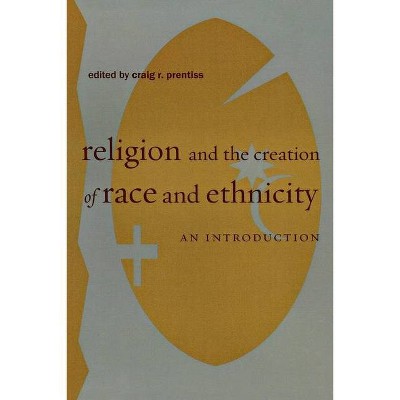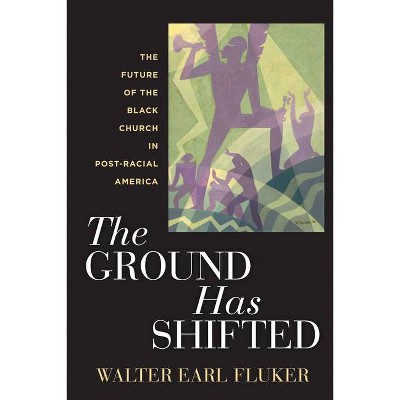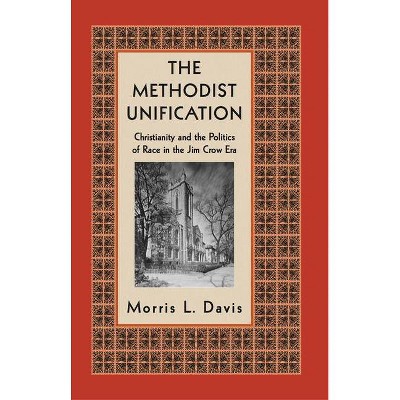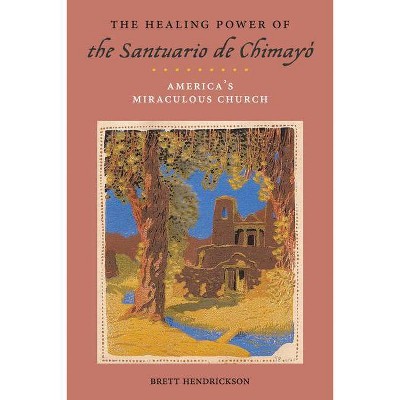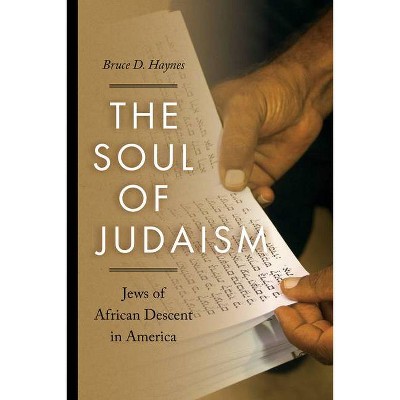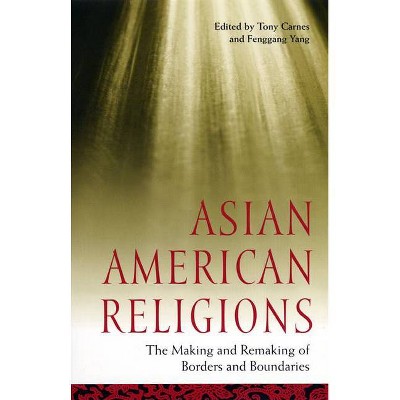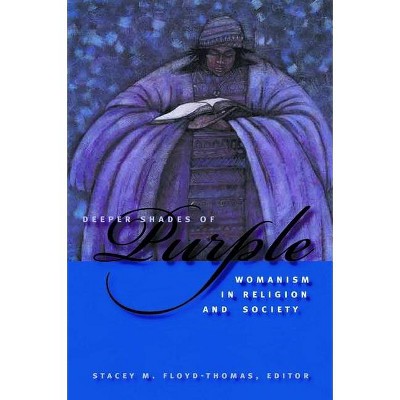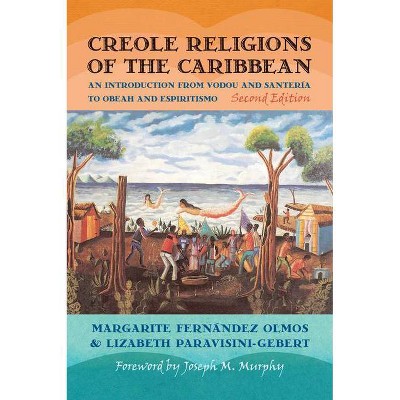The Divided Mind of the Black Church - (Religion, Race, and Ethnicity) by Raphael G Warnock (Paperback)
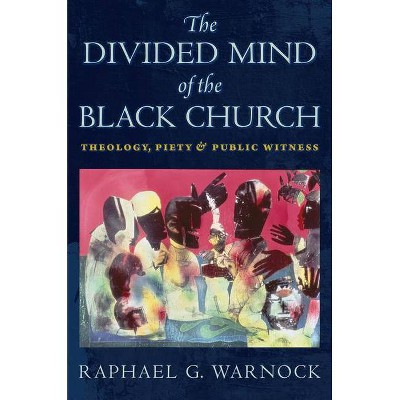
Similar Products
Products of same category from the store
AllProduct info
<p/><br></br><p><b> Book Synopsis </b></p></br></br><p><b>A revealing look at the identity and mission of the black church</b> <p/>What is the true nature and mission of the church? Is its proper Christian purpose to save souls, or to transform the social order? This question is especially fraught when the church is one built by an enslaved people and formed, from its beginning, at the center of an oppressed community's fight for personhood and freedom. Such is the central tension in the identity and mission of the black church in the United States. <p/>For decades the black church and black theology have held each other at arm's length. Black theology has emphasized the role of Christian faith in addressing racism and other forms of oppression, arguing that Jesus urged his disciples to seek the freedom of all peoples. Meanwhile, the black church, even when focused on social concerns, has often emphasized personal piety rather than social protest. With the rising influence of white evangelicalism, biblical fundamentalism, and the prosperity gospel, the divide has become even more pronounced. <p/>In <i>The Divided Mind of the Black Church</i>, Raphael G. Warnock, Senior Pastor of the historic Ebenezer Baptist Church, the spiritual home of the Rev. Dr. Martin Luther King, Jr., traces the historical significance of the rise and development of black theology as an important conversation partner for the black church. Calling for honest dialogue between black and womanist theologians and black pastors, this fresh theological treatment demands a new look at the church's essential mission.</p><p/><br></br><p><b> Review Quotes </b></p></br></br><br><i>The Divided Mind of the Black Church</i> is an informative work for historians, theologians, and humanities scholars interested in debating what the Black Church needs to be doing in the 21st century.-- "Journal of African American History"<br><br>As a person who is not Black, reading this book provided a learning experience for me. It has helped me better understand the dynamics of the Black church. I could also see this book serving as a way to spark discussion involving all ethnic groups as to how we can all, as fellow Christians, blend the goals of saving lost people and moving the culture toward equality for everyone.-- "Ministry"<br><br>As we celebrate the life of the most famous black pastor, Martin Luther King Jr., we should remember that the black church mission connects faith with justice and personal salvation with social transformation, and addresses personal piety and public policy for the well-being of the whole person and the whole community. It fights for the weak and sees the Gospel as 'good news for the poor.'--Raphael G. Warnock, CNN<br><br>Eloquently lays waste to the false theological dilemma between advocates of individual salvation and social justice. Real religion is both personal and political; Warnock skillfully shows how that works by probing creative tensions in the black church between heavenly hunger and earthly engagement. He brilliantly enhances the distinguished intellectual achievement of the historic Ebenezer pulpit by showing how black and womanist theologies partner with the black church to bring God's mighty word to bear on our souls and society all at once.--Michael Eric Dyson, University Professor of Sociology, Georgetown University<br><br>Embodied in this book is the sharpness of mind of one with an earned Ph.D. in theological studies and the human compassion of a pastor of one of the major churches in the United States. Rarely, if at all, do we get to relish such combined matters of the head and heart. Moreover, this groundbreaking work is rooted in deep spirituality and progressive commitment to the Bible. The ponderings in these pages echo the insightful eyes of the prophetic mystic, Howard Thurman and the scholarly activism of Martin Luther King, Jr.--Dwight N. Hopkins, editor of The Cambridge Companion to Black Theology<br><br>Raphael G. Warnock's <i>The Divided Mind of the Black Church </i>is not only a scholarly monograph but also an autobiographical work on the pietistic and prophetic traditions of the black church.-- "Black Theology"<br><br>Raphael Warnock demonstrates in this book that he is a worthy occupant of the Ebenezer pulpit, following in the intellectual tradition of Martin King and his mentor, Dr. Benjamin Mays. It was faith that led us to activism. Whether one is looking to understand the foundation of civil rights, to understand the role of faith in our public life or seeking to understand a personal call to serve, this book will be enlightening.--Andrew Young, former U.N. Ambassador, Mayor of Atlanta and Executive Vice President of SCLC<br><br>Raphael Warnock is known as one of the most brilliant orators of his generation. This excellent new book reveals him to be a brilliant scholar as well. It is the first major work to critically explore the 'double-minded' relationship between the social practice of black churches and the radical implications of their historical witness against the social oppression of the black masses. Warnocks path-breaking periodization of the social activism of the black church is a major contribution to understanding the role of black churches in this nations often stumbling march toward a racially just society. . . . The Divided Mind of the Black Church is a must read for every black pastor, theologian, scholar, and anyone who wants a deeper understanding of the history and political culture of black churches and the expanding contours of black theological scholarship.--Obery M. Hendricks, Jr., author of The Universe Bends Toward Justice<br><br>Raphael Warnock, a son of Pentecostal preachers, a theological protégée of James Cone, and pulpit heir of Martin Luther King, Jr., is brilliantly conversant with the ivory tower of academia, yet works in the ebony trenches for justice and the liberation of the 'least of these.' In this literary gift he has insightfully traced the ecclesial and theological journey of the Black Church in America, diagnosing a 'double consciousness' that borders on bipolarity. He prophetically pronounces liberation from captivity to a borrowed oppressive theology that is illustrated by Black pastors who have a picture of Dr. King in the study, but are influenced by Rick Warren when they preach from the pulpit. This scholar-prophet-pastor, in this wonderful work, is presiding over a wedding ceremony, uniting in holy wedlock, piety and protest, the scholarship of liberation and womanist scholars and the ministry and pulpit of the Black Church, with the hope that this marriage will birth a 'new moment of a self critical liberating community.' This family of freedom and faith proposed by Dr. Warnock will usher in that day when 'justice rolls down like waters and righteousness as an ever flowing stream.'--Frederick D. Haynes III, Senior Pastor, Friendship-West Baptist Church<br><br>Raphael Warnock's <i>The Divided Mind of the Black Church</i> is a courageous and timely effort to reinvigorate the rich tradition of the Black Church by a full-fledged engagement with the best of its history and theology. Like the Sankofa bird, he looks to the past in order to move forward!--Cornel West, Professor of Philosophy and Christian Practice, Union Theological Seminary<br><br>Refusing to be content with the piety or protest divide between the Black Church and Black Theology, Warnock argues with scholarly rigor and pastoral fire for a vital partnership between the two. As a dedicated pastor and astute theologian, Warnock persuasively argues for a fifth movement in the Black Christian traditiona self-critical liberationist community that represents a public theology founded on the pietistic and liberationist dimensions of the Church. This is a must read for clergy, laity, and the academy.--Emilie M. Townes, Dean and Professor of Ethics and Society, Vanderbilt University Divinity School<br><br>Resilient in its hope and perceptive in its analysis, this book makes a valuable contribution to imagining a liberation-focused ecclesiology.-- "Ecumenical Review"<br><br>The book reads as an altar call to action that honors the liberationist roots of a global church community, regardless of race or gender.-- "Publishers Weekly"<br><br>The broadness and depth of Warnock's theological education and his distinguished pulpit give him the authority to ask the question: piety or protest? Warnock leads us through the history of the tensions and conversations among the black church, black theology and black pastors to boldly change this question into an exclamatory indicative: piety and protest. He admonishes all parties to move beyond the silos of their particular perspective to convene for the broader exchange of ideas, enabling us to fulfill our mission of helping to save the black community and the soul of our nation.--James A. Forbes Jr., Senior Pastor Emeritus, Riverside Church<br><br>This contribution to the enduring subject of piety and protest in black theological discourse is of special importance because it is written from the vantage point of one who stands in the gapa competent theologian with a pastoral vocationvalidating his craft in the trenches of social justice advocacy and community transformation.--Cheryl J. Sanders, Howard University School of Divinity<br><br>This well-written and meticulously researched treatment of black church piety and social engagement is a timely and pivotal assessment as we head into the next chapter of American religious life.-- "The Christian Century"<br><br>Warnock carefully traces the history and evolution of the independent black church in America, moving from the black church as a bastion against slavery all the way to the role Ebenezer Baptist and other black churches played in the Civil Rights Movement. He asserts that the black church's roots are in the battle for social liberation of black people, rooted in a progressive understanding of the life and message of Jesus Christ.--Mark Reynolds "Popmatters"<br><br>Warnock weaves together an impressive array of subjects to advance his argument on the & divided mind of the black church.His introduction, five chapters, and conclusion provide much in structure and content for the advancement of his burden, namely, the construction of a & self-critical liberationist community where & piety and protest may be held in balance.-- "Sociology of Religion"<br><p/><br></br><p><b> About the Author </b></p></br></br><b>Reverend Dr. Raphael G. Warnock</b> is a United States Senator for Georgia. He previously served as Senior Pastor of the Ebenezer Baptist Church (Atlanta, Georgia).
Price History
Price Archive shows prices from various stores, lets you see history and find the cheapest. There is no actual sale on the website. For all support, inquiry and suggestion messages communication@pricearchive.us
